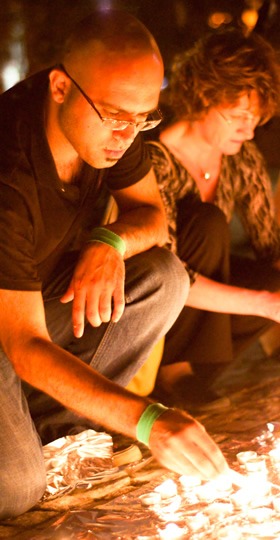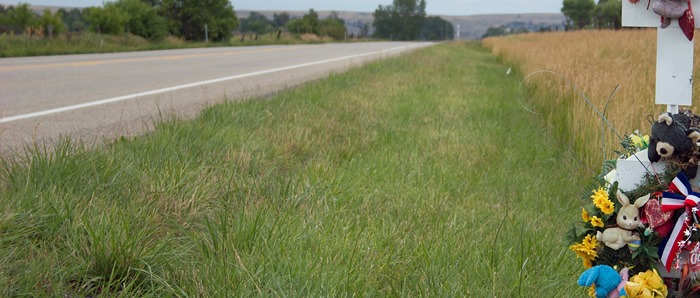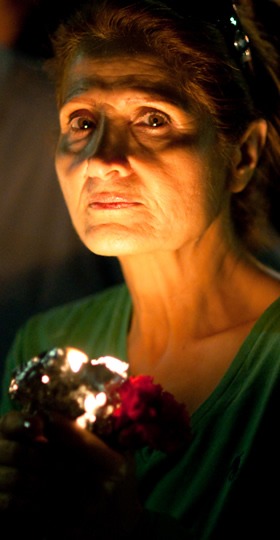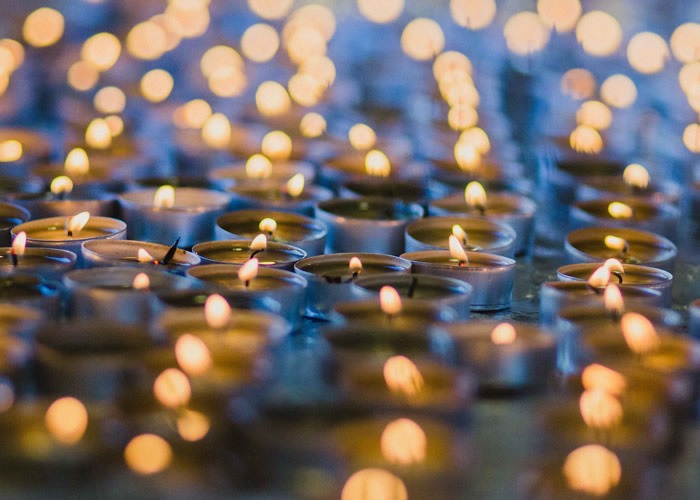Trauma in the Community
I just cannot believe this tragedy happened here in our community. Is there nowhere safe anymore! It could have happened to any one of my family, friends or myself. How can I go back there and not think about what happened? I am full of questions that no one can answer: why did this happen, why here, why these people, could anything have been done to avoid the tragedy?
Trauma…
It is a word we are familiar with. We are made aware of the incidents of trauma in our newspapers and in our television and radio news every day. There are many stressful experiences of living; however, some communities may be faced with extraordinary life circumstances that leave us feeling fearful powerless and/or overwhelmed in the aftermath of a tragic event. When trauma occurs in our community, we often experience feelings of shock, denial and disbelief.
 Post-trauma reactions are natural and often predictable reactions in most of us following a traumatic incident. These reactions do not indicate signs of fragility; rather they are a natural reaction to an abnormal event.
Post-trauma reactions are natural and often predictable reactions in most of us following a traumatic incident. These reactions do not indicate signs of fragility; rather they are a natural reaction to an abnormal event.
A Natural Reaction to an Abnormal Incident
Immediately following a traumatic incident, many people experience a period of shock, disbelief, emotional numbness and detachment, and a wide spectrum of other emotions, many that are difficult to put into words. Over the next few days, weeks and months, each of us may experience many different reactions to the tragedy that we have been involved in. We may suffer from feelings of anger, sleep disturbances, flashbacks to the event, mood disturbances, social isolation, anxiety, fear and intense feelings of grief.
While most post-trauma reactions will begin to diminish after a few weeks, a minority of individuals may continue to have post-trauma symptoms that may develop into Post-Traumatic Stress Disorder (PTSD) and may require professional assessment and intervention.
The following post-trauma reactions may be familiar to you or to someone you love. These reactions are natural, and although painful, are a normal part of the healing process.
Emotional Reactions
Since the tragedy occurred, I feel that I am on an “emotional roller coaster”. I have become very protective of my friends and my family and I feel “different” than before. My moods shift more frequently than before the tragedy and my feelings of vulnerability and uncertainty have increased.
It is common for us to experience a wide range of emotions in the aftermath of a traumatic event, including feelings of fear, anxiety/nervousness, irritability/frustration, numbness, helplessness and grief

Physical Reactions
Lately I feel extremely exhausted. I either sleep for a few hours or I cannot sleep at all. My mind starts thinking about what happened and the “what ifs”.
Sleep is often affected after a tragedy. Many of us have difficulty falling asleep, staying asleep and feeling rested in the morning. Many of us also have nightmares and vivid flashbacks to the trauma. While some of us may feel tired and fatigued, others may have periods of extreme activity. Eating patterns may also change, whereby we may not have an appetite or we may eat more than usual. Many of us also become easily startled by noises. It is also common for us to experience changes in our health such as nausea, upset stomach, diarrhea, headaches, muscle aches and digestive difficulties.
Behavioural Reactions
The best thing I could have done for my relationship with my family and friends was to take some time out for myself. My thoughts slowed down and did not seem as overwhelming as before. I was able to come to terms with some things and started to let go of my anger. My family understood and gave me the time that I needed.
Many of us require time on our own to grieve in the aftermath of a tragedy, yet others prefer to be in a supportive environment with friends and family.
Be Kind to Yourself
Although there is no set answer as to how long each of us will feel this way, what we can do is be kind to ourselves – rest when we need to, follow a balanced nutritional program, lower our expectations temporarily, rely on the help and support of others, try to accept our limitations, and take things “one day at a time”.
 As each of us is the expert of our own life and our own grief, we need to do whatever we can to cope with our pain. We must have confidence that, in time, each of us will return to the activities of daily living that we enjoyed before the traumatic incident.
As each of us is the expert of our own life and our own grief, we need to do whatever we can to cope with our pain. We must have confidence that, in time, each of us will return to the activities of daily living that we enjoyed before the traumatic incident.
Healing as a Community
The pain after a tragic event is intense. Each of us may feel and respond differently to the tragedy, and most of us will choose to say “goodbye” in our own personal way. How one grieves is truly a unique journey based on our past experiences, including cultural and spiritual beliefs, our relationship with the individual(s) involved, and the world itself. There is no timetable or “right” way to grieve; each of us has the right to think, feel and express our grief, regardless of how others “think” we “should be”.
The funeral ritual and memorial services allow us to gather and pay tribute to the victim(s) and their families while also encouraging members of the community to support each other in their own grief. Oftentimes, a community will create a monument, dedicate a small piece of land, or possibly name a building in memory of our loved ones. As a community, many of us feel that it is important to celebrate the life of the deceased.
Making Sense of It All
The person who coined the expression “time heals” could not possibly have lived through the devastation of a traumatic incident. Questions will exist that may never be simply answered, as well as images and memories as vivid as the day the tragedy occurred. Time, however, will allow us to move through the intense emotional pain of tragedy and time will move us forward in our search to find meaning. Time does allow us to redefine the loss and move us forward in our search to make sense of something that, at this moment, does not make any sense at all. The search for meaning after a traumatic event is a natural and healthy part of the grief journey.
It takes courage, inner strength, the love of family and friends, and a sense of community to journey through grief into healing.

